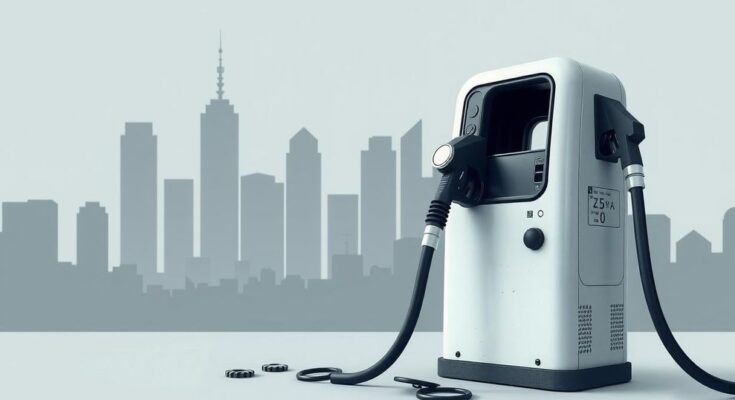President Bola Tinubu declared that Nigeria would have faced bankruptcy if fuel subsidies had not been ended. He highlighted the critical economic reforms under his administration, receiving support from former National Assembly members for initiatives like the Nigerian Education Loan Fund and CREDICORP, aimed at improving social and financial conditions for citizens.
On Thursday, President Bola Tinubu asserted that Nigeria was on the brink of bankruptcy prior to his administration’s decision to terminate the fuel subsidy and implement essential economic reforms. During a meeting with former National Assembly members from the Third Republic, he emphasized his actions were to safeguard the interests of future generations.
President Tinubu remarked, “For 50 years, Nigeria was spending money of generations yet unborn and servicing the West coast of our sub-region with fuel. It was getting difficult to plan for our children’s future.” He explained that urgent measures were necessary to address the severe social and economic challenges facing the country during his tenure.
He noted the precarious conditions at the onset of his administration, remarking, “We faced serious headwinds when I took over, very challenging times. Nigeria would have been bankrupt if we had not taken the actions that we took.” He praised Nigerians for their unwavering support during the reforms, which he indicated helped stabilize the exchange rate and reduce food prices, notably during Ramadan.
“Today, we are sitting pretty on a good foundation. We have reversed the problem; the Exchange rate is stabilizing. Food prices are coming down, especially during Ramadan. We will have light at the end of the tunnel,” Tinubu added.
The President also articulated the importance of democracy as a pathway to achieving comprehensive development and commended those who uphold democratic values, reflecting on his experiences in the Third Republic.
Senator Emmanuel Nwaka, representing the visiting delegation, lauded the administration’s initiatives such as the Nigerian Education Loan Fund and the Nigerian Consumer Credit Corporation. He commented on the positive impact of these programs, stating, “I appreciate you for what you are giving to students because the student population is the largest demographic in the country.”
Nwaka further endorsed the CREDICORP initiative, asserting it as a significant measure to combat corruption and facilitate financial support for young professionals. The delegation included Senators Bako Musa, Terwase Orbunde, and others who expressed their support for the President’s policies.
In summary, President Bola Tinubu’s decisive actions to abolish the fuel subsidy were deemed essential to prevent Nigeria’s impending bankruptcy. Through a series of economic reforms, Tinubu aims to secure a sustainable future for the younger generations. He received endorsement from former National Assembly members for his administration’s initiatives, which are expected to provide relief to students and combat corruption effectively. The pathway forward appears promising, with a stabilizing economy and improving conditions.
Original Source: punchng.com




